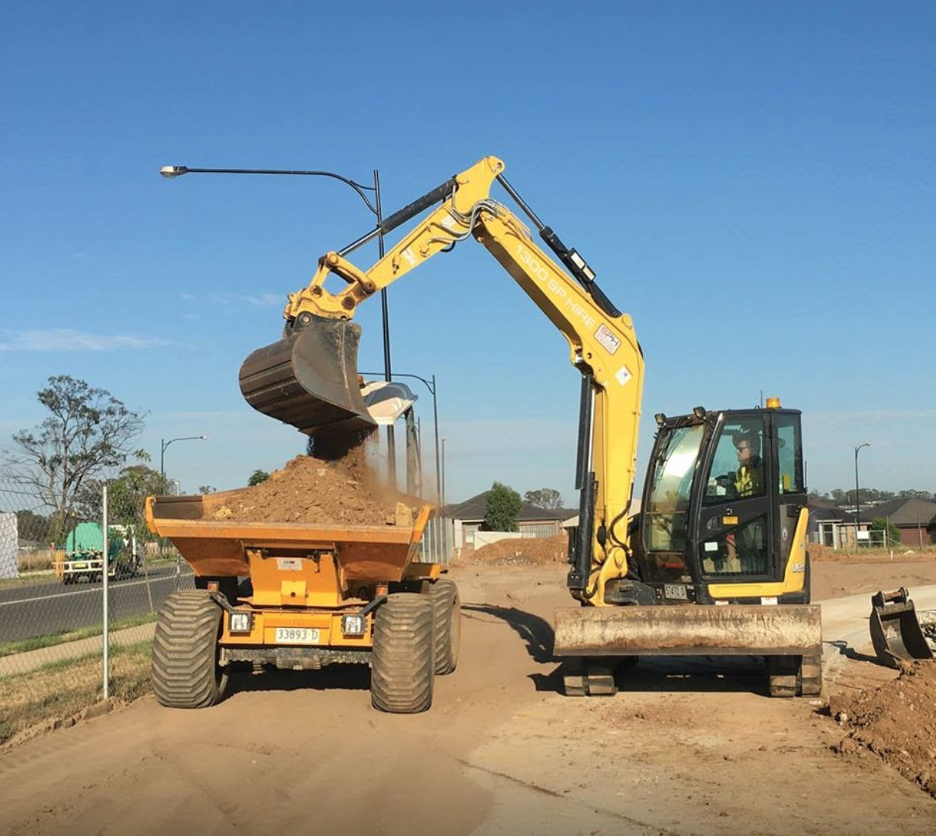
Costs associated with a construction project can quickly pile up — it’s always crucial to find areas where resources can be better utilised and expenses minimised. Usually, one of the first places construction professionals look in order to achieve these goals is the equipment used on the job site.
It’s no secret that construction equipment, and excavators in particular, makes up a significant portion of the expenses column on a job site — there’s really no way around it. So when considering the types of excavators that you’ll be using, it’s important to weigh the pros and cons of renting a dry hire excavator versus purchasing a used one.
In most cases, renting will probably make more sense for your business. To help you with this decision, we’ve evaluated some of the main considerations to take into account.
The Benefits of Renting a Dry Hire Excavator
Renting construction equipment gives a project (and its budget) true flexibility. The nature of the construction industry means that some variables will always arise between the plans for a site and its actual creation. When using purchased equipment, the capacity to respond to changing needs of a project will be reduced.
This can have a ‘knock on’ effect of slowing down the project’s progress overall, and ultimately can see costs blow out if owned equipment can’t finish off a task properly. With renting, these issues are neutralised as it’s always possible to seek out the precise equipment needed to do the job perfectly. There’s also peace of mind in knowing that in the unlikely event of an equipment malfunction, the rental team will be able to provide assistance.
Owning An Excavator
Purchasing a used excavator means you’ll always have one on hand, which can be useful if any last-minute projects come up and will save you the hassle of having to source a rental every time you need one. However, it’s important to note that sourcing construction equipment for rent is generally a quick process, so this is not necessarily a considerable advantage of owning.
Owner’s Obligations
When someone buys a used vehicle, they subsequently assume responsibility for it as an owner. Although this sounds straightforward at first — most adult Aussies have bought a car at some point in their life — doing so with a piece of construction equipment can come with many additional obligations surrounding insurance, maintenance, and workplace safety. Operating an excavator is serious business, and it comes with serious responsibilities.
These elements can of course still be a factor when you rent a vehicle, but owning versus renting always comes with additional responsibilities. It’s important for any potential buyer to think carefully about whether they’re prepared to take on these obligations (and paperwork!) or opt for the more straightforward option of renting.
The Security Factor
The reality is that the Australian construction industry is going through a period of turbulence and uncertainty right now, along with most other industries, as a result of the coronavirus pandemic that’s cost Australia an estimated $4 billion a week in reduced economic activity. This means a lot of projects have seen their timetables disrupted.
In such circumstances, the cons of buying a used excavator can be compounded. Not only is there the need to find space to store it on a job site, but also keep it secure and protected for the period of time when workers are off-site waiting for the project to resume. Renting an excavator provides more freedom and flexibility — if your project sustains a big unforeseen delay, you can return the rented equipment. You can then hire it out again once work resumes, knowing it won’t be sitting idle.
Certainty Versus Flexibility
For any business with a clear and firm vision about their future needs, buying construction equipment may be the ideal choice. Buying gives a business the assurance that the equipment they need will always be immediately available and ready to use. It can also help streamline processes, and speed up the timeframes for short-term projects to be completed.
However, it’s also important to keep in mind that buying offers significantly less flexibility than renting. For example, your team may start a project with a 3.5T excavator, but changes to the project may later require a 5.5T excavator. If you’re renting, it’s possible to return the equipment and make an easy swap to a different size. But if you’re the owner, it can be a long and laborious process to try to get the rig sold on the second-hand market, and you might end up having to rent the correct equipment anyway.
In sum, always consider your exact needs and budget very carefully when deciding whether to rent or purchase a used excavator. Both come with advantages and drawbacks, although renting ultimately provides more flexibility and affordability for most projects.
Have you had experience buying or renting excavators? Let us know in the comments below.
Image: Solution Plant Hire (Facebook)



